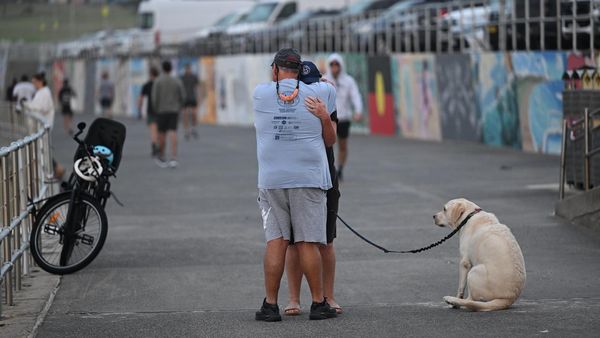
A court has rejected a developer’s bid to turn a boarding house into luxury apartments in a case the lord mayor of Sydney hopes will set a precedent to stop the ongoing loss of affordable housing.
In the wake of the court’s decision the mayor, Clover Moore, has also called on the Minns government to allow significant loss of individual homes as a ground for rejecting development applications.
Developer LFD Homes took the City of Sydney to court over its decision to block its application to turn a boarding house – which housed 28 mostly elderly men on Selwyn Street in Paddington – into four dwellings.
In findings handed down on Thursday, the NSW land and environment court sided with the City of Sydney on the grounds of social impact and the loss of affordable housing, finding that the 32-room building should be retained because the proposal “would result in the unacceptable loss of affordable rental boarding house accommodation in the local area”.
The decision followed a protracted community campaign from residents and their neighbours to retain it.
But it came too late for the 28 men living there, who were handed eviction notices last October and have all since left.
Jeff Elliott was one of the 28 men who were evicted. The 61-year-old, who works as a postman, had lived in the boarding house for more than 20 years. He left just a few weeks ago.
“It was a family,” he said of the bond he had with the other men living there.
“We barbecued together, we shared Christmas together, we did everything together. I haven’t seen them since we left.”
Mike Mannix, one of the neighbours who started the community campaign, said the court’s decision was bittersweet and he felt as if they had failed the men.
“They were our friends and we didn’t want to see them go from our community,” he said. “At least this very dark cloud has a silver lining and hopefully we can set a precedent for the future.”
Moore also acknowledged the decision had come too late for the men who had to leave their homes.
Last year, in an unprecedented move for the council, it offered to buy the boarding home from the developer after a successful motion moved by the Greens. The NSW government also agreed to pitch in a portion of the cost to buy it.
The council said the developer has not yet indicated a willingness to sell. It remains unclear what the developer will do with the building after the court’s decision.
“Sydney should not simply be an enclave for the rich,” Moore said.
“We need more housing, not less. That’s why stories like this are so confronting and why the city rejected this development application in the first place.
“We are hopeful the decision will set a valuable precedent that stops the loss of affordable and diverse forms of accommodation to private residential development across the state.”
Moore said there were about 4,000 rooms in boarding houses across the City of Sydney’s local area. That number was shrinking because there was “greater profit in converting these buildings into a small number of luxury residences”.
“The NSW government needs to urgently implement the recommendations from the statutory review of the Boarding Houses Act and consider significant loss of individual homes as grounds for rejecting development applications to avoid this devastation in the future,” she said.
The recommendations of the boarding house review – which was handed down in 2020 – included establishing minimum standards for “reasonable notice” to evict a boarding house tenant. Boarding house residents are not protected under the same tenancy laws as renters, which now include provisions to protect renters from no-grounds evictions.
Elliott has been living at his sister-in-law’s home in Redfern. He said he had the opportunity to move into another boarding house, but rejected the offer because he now feared insecurity.
Mannix said the men were relocated in “record time” and had moved across the city, including to the inner west, Penrith and Malabar.
Sylvie Ellsmore, the Greens councillor who moved the motion for the boarding house to be bought by the council, said the court’s decision was “historically unprecedented” and reflected how dire the housing crisis was.
“Five or 10 years ago, we probably wouldn’t have got this decision, but the scale of the housing crisis has changed,” she said.
Ellsmore called for the NSW state government to buy boarding houses – which are privately owned – and turn them into public housing.
“This is quite a dense type of housing that already exists that can provide housing for lots of people,” she said.
LFD Homes was approached for comment.







